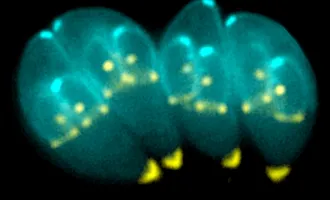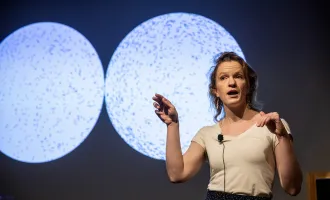‘One Size Doesn’t Fit All’: What precision medicine holds for our future
“Tonight, I’m launching a new Precision Medicine Initiative to bring us closer to curing diseases like cancer and diabetes—and to give all of us access to the personalized information we need to keep ourselves and our families healthier,” announced President Barack Obama during this year’s State of the Union address.
The president emphasized the need to “get people the right drug at the right time” and highlighted, Ivacaftor (Kalydeco), a wonder drug that cures select cystic fibrosis patients. Ivacaftor restores function in about 5 percent of cystic fibrosis patients with a specific amino acid mutation in the key cystic fibrosis transmembrane conductance regulator protein, allowing for the proper flow of fluids in and out of cells.
Cystic fibrosis is not the first case where knowing a patient’s genetic profile significantly improved medical treatment. Blood typing enabled safe blood transfusions without the risk of fever, shock or organ failure. Understanding the genetics of cancer patients with chronic myeloid leukemia (CML) led to the development of the drug Gleevec (Imatinib), which has extended the lives of thousands of CML patients who tested positive for the presence of the Philadelphia chromosome.
With government support, this trend of personalized medicine will become the standard of care. But we still have a long path ahead. “Clinical impact is currently limited because the infrastructure isn’t there yet,” cautioned Nina Gonzaludo, a fifth-year Pharmaceutical Sciences and Pharmacogenomics graduate student working with Kaiser Permanente to incorporate patient genetic information into electronic medical records.
Databases are needed to store and secure patient data, health workers and patients need to be trained to understand genetic information, and researchers need to continue to find links between genetics and medicine. The White House has allocated $215 million in the president’s 2016 budget to address these needs; the funds are split between the National Institutes of Health ($130 million), National Cancer Institute ($70 million), Federal Drug Administration ($10 million) and the Office of the National Coordinator for Health Information Technology ($5 million) to improve infrastructure, regulation and security of genetic information as well as increase genomic research and to identify genetic drivers of cancer.
What does this mean here at UCSF? The university is taking strides to remain at the forefront of precision medicine through two widely supported programs: The Genomic Medicine Initiative and the Institute for Computational Health Sciences. The overall goal is to create the infrastructure to make precision medicine possible.
The GMI focuses on integration of genomic data into patient medical records to enable doctors to access current genetic research when treating patients as well as centralize data on clinical outcomes for use by researchers to bolster genetic predictions. UCSF is partnering with software company, Syapse, which specializes in seamless consolidation of medical and genetic patient information for the initiative.
On the other hand, the IHCS will serve as a warehouse for genomic data, making it easier for both researchers and physicians to access and store genetic information. UCSF proudly announced last month the recruitment of prominent medical informatics pundit, Atul Butte to head the institute (see interview, page 7).
“If we just aggregate the [genetic] data, we’d have just a pile of data. The challenge is to devise ways to analyze it, mine it and make sense of it,” said Keith Yamamoto, UCSF vice chancellor of research of these new steps.
There are still changes ahead to make precision medicine a reality, but we are slowly but surely shifting away from one-size-fits-all medicine both at UCSF and nationally.


